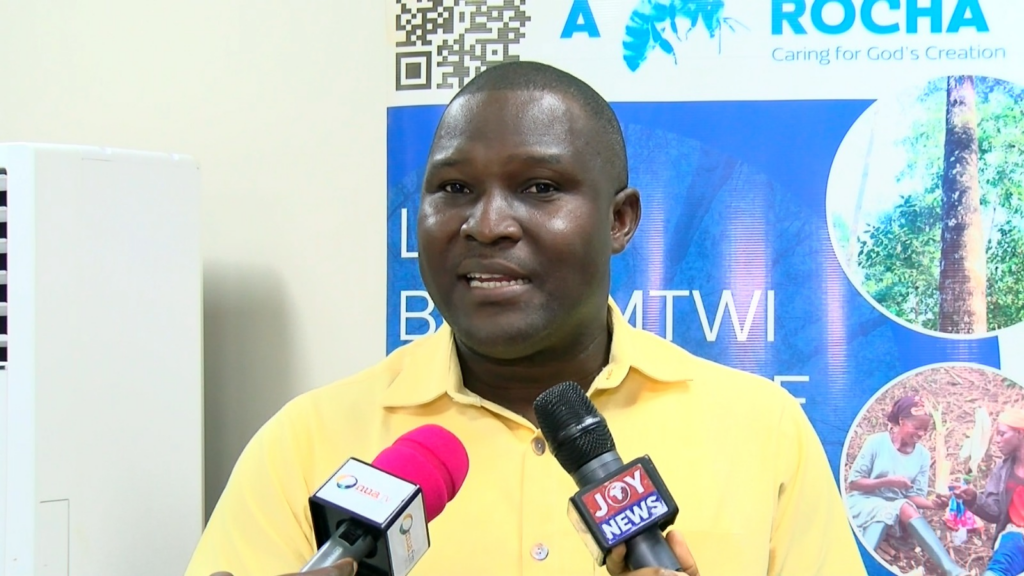Environmental advocacy group, A Rocha Ghana, has criticised the country’s efforts in combating illegal mining, warning that the fight against “galamsey” is already faltering under the new government.
The group predicts another four years of failure unless citizens rally behind the cause.
A Rocha Ghana has sharply criticised the ineffective strategies of past governments, observing that the current administration, under the National Democratic Congress (NDC), is offering excuses rather than solutions to address the crisis.
The group argues that the government’s decision to deport foreigners involved in galamsey without prosecuting them does not tackle the root causes of the escalating illegal mining issue.
In collaboration with King’s College London, A Rocha Ghana hosted a high-level multi-stakeholder dialogue in Kumasi aimed at finding solutions to the environmental, health, and social impacts of illegal mining.
The event gathered traditional leaders, district assembly representatives, civil society organisations, and members of the media, all expressing deep concern over the rate at which irresponsible mining is destroying Ghana’s environment and ecosystem.
Illegal mining, or galamsey, continues to affect more than 13 of Ghana’s 16 regions, despite efforts by successive governments to curb the practice.
A Rocha Ghana’s Deputy National Director, Daryl Bosu, said that previous governments have been caught in a “vicious cycle” – taking one step forward and two steps back in the fight against galamsey.
“The previous government tried its best, but unfortunately, that amounted to nothing,” Mr. Bosu said. “We now have a new government, but we can already see that we are on the path to failure. What we’re left with are excuses, not hope.”
“If we’re not careful, we will waste another four years. If the citizens don’t take charge and support the campaign, we will be overwhelmed by the fight. We had initiatives like Galamstop and Operation Vanguard, but they amounted to nothing. All we’ve seen are excuses,” he added.
The government has resolved not to prosecute foreign nationals involved in illegal mining activities, opting instead to deport them.
In response, A Rocha Ghana has raised concerns about the selective application of laws, which appear to favour the wealthy individuals who drive the largest illegal mining operations.
“Deportation is not a punishment,” said Mr. Bosu. “If local perpetrators serve prison sentences, then so should foreign perpetrators. These foreigners are deported with the profits they have made from their illegal activities, so where is the accountability? The law must be applied equally to all. If you want to mine, you must adhere to the required guidelines.”
Mr. Bosu also pointed out that powerful financial interests are fuelling the galamsey crisis, many of which involve foreign nationals.
He argued that bending the law for such individuals shows that Ghana is not ready to take the necessary steps to address the problem. The multi-stakeholder engagement is focused on finding agricultural, reclamation, and policy-based solutions, with an emphasis on collaboration among all involved parties. A Lecturer in Security Development and Leadership at King’s College London, Dr. Clement Sefah Nyarko, advocated for a process-based approach that involves all stakeholders in the mining value chain.
This approach, he argued, would not only address the crises but also bring benefits to affected communities.
“Mining contributes a third of our GDP, so we must get it right,” Dr. Nyarko said. “From a leadership perspective, a process-based approach should be adopted. Stakeholders must take ownership of the process, which will ultimately benefit the communities and the mining sector itself.”
DISCLAIMER: The Views, Comments, Opinions, Contributions and Statements made by Readers and Contributors on this platform do not necessarily represent the views or policy of Multimedia Group Limited.

